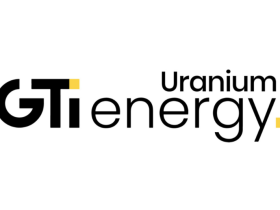While the Chinese government has no qualms about banning cryptocurrencies, the country’s stance on blockchain technology is different, allowing blockchain stocks in China to flourish.
China’s blockchain technology market was worth an estimated US$1.4 billion in 2022, up from US$14.4 million in 2027.
Over the past few years, President Xi Jinping has voiced his desire to see China as an industry leader in blockchain technology. In an early 2023 article, Xi wrote about how 5G, artificial intelligence, cloud computing and blockchain technologies will play an outsize part in China’s economic growth and dominance on the global stage in the years ahead. Soon after, the nation released its grand plan for digital-based infrastructure for the benefit of its economy.
The Chinese government is also embracing blockchain as a way to strengthen its cybersecurity infrastructure. The technology is also finding support at the provincial and city government levels. What’s more, a total of 33,689 registered blockchain companies in China in 2022, more than double the figure in 2016. This dramatic increase has come in part due to Xi’s endorsement of the technology.
Of course, the ban on cryptocurrency trading in China means that many of the nation’s blockchain firms have lost out on the big gains the emerging sector has made in the past few years. However, that’s allowed China’s blockchain companies to remain untouched by the market fallout associated with trading digital tokens. And interestingly, China hasn’t fully turned away from digital currency — the People’s Bank of China has made a digital version of the yuan, which it controls. China’s Central Bank launched a wallet app to expand the adoption of its domestic digital currency.
Additionally, South China Morning Post reported in May 2023 that the Chinese government is opening a national blockchain research center in Beijing with plans to train 500,000 blockchain professionals and build out a blockchain network at the national level.
With China poised for long-term growth in the blockchain industry and positioned to be a global leader, investors in the space should be familiar with the Chinese blockchain stocks that are driving the market.
Below is an overview of 10 blockchain stocks in China. The companies are listed from largest to smallest in terms of market cap, and all data was accurate as of July 31, 2023.
1. Alibaba Group Holdings (HKEX:9988,NYSE:BABA)
Market cap: CNY 1.79 trillion
Alibaba Group Holdings is an ecommerce, retail, internet, AI and tech company with a focus on providing consumer, business and sales services through the internet, as well as electronic payment services.
Alibaba tops this list of blockchain stocks in China, and its affiliate Ant Group owns the largest digital payment platform in China. For the second year in a row, Ant Group was recently named a Top 100 Global Innovator 2023 by Clarivate. “In 2022, Ant Group obtained over 4,000 new patents globally,” stated the press release. “Since 2016, the number of patents held by Ant Group has increased more than 40 times to over 17,000.”
2. Industrial and Commercial Bank of China (SHA:601398,HKEX:1398)
Market cap: CNY 1.587 trillion
The Industrial and Commercial Bank of China (ICBC) is China’s largest state-owned commercial lender by assets. ICBC has an industry leading enterprise-level blockchain technology platform. The bank launched a special blockchain research team in 2016 and published the banking sector’s first white paper on blockchain technology applications in finance in 2021.
More recently, ICBC has been working to expand its metaverse pilot program as a part of promoting its new digital brand: D-ICBC. The bank is also looking to integrate digital yuan (e-CNY) with the business activities in the metaverse.
3.China Construction Bank (SHA:601939,HKEX:939)
Market cap: CNY 1.05 trillion
One of the country’s big four banks, China Construction Bank provides a broad range of commercial banking products and services, including infrastructure loans, residential mortgages and bank cards. Its extensive customer base encompasses conglomerates and companies in many of China’s economically important industries.
The state-owned bank is conducting research and development of blockchain technologies, and building out platforms that incorporate blockchain, big data, AI and mobile internet technologies.
4. Ping An Insurance Company of China (SHA:601318,HKEX:2318,OTC Pink:PIAIF)
Market cap: CNY 937.649 billion
Ping An Insurance Company of China became the first Chinese company to join the R3 blockchain consortium back in 2016. R3 is a firm working on how blockchain can be applied in the financial markets.
In February 2022, Ping An Insurance was named to Forbes’ fourth annual Blockchain 50 list, mainly due to the success of its subsidiary OneConnect’s blockchain financing platform FiMAX.
5. China Merchants Bank (SHA:600036,HKEX:3968)
Market cap: CNY 888.35 billion
China Merchants Bank is a commercial bank with operations in China and overseas. The financial institution offers corporate and personal banking services and has three segments; the first two are wholesale finance and retail finance, and the third segment includes investment real estate, subsidiary operations and joint ventures.
In collaboration with the Civil Aviation Administration of China, China Merchant Bank has introduced a digital yuan platform that will allow Chinese business travelers to pay for airline tickets using the country’s central bank digital currency.
6. Postal Savings Bank of China (SHA:601658,HKEX:1658)
Market cap: CNY 500.62 billion
Postal Savings Bank of China (PSBC) provides commercial retail banking and financial services in China. PSBC has three main business segments: personal banking, corporate banking and financial markets.
PSBC has built a blockchain-based asset management system with IBM (NYSE:IBM). The bank is one of the large Chinese entities working with the government to develop digital yuan payments technology.
7. Baidu (HKEX:9888,NASDAQ:BIDU)
Market cap: CNY 382.88 billion
Baidu was established in 2000. Its area of expertise is internet-related services and products and, most importantly, AI. Baidu is known for being one of the world’s largest AI and internet companies across the globe.
Baidu offers a blockchain-as-a-service platform and is patenting blockchain technology for payment security. In late 2021, the company launched its own metaverse, the virtual world XiRang, also known as Land of Hope, which is accessible on computers, smartphones and wearable devices. Users can create an avatar and interact in real time with other users.
More recently, in March 2023 Baidu announced that it will connect its decentralized application DApp to multiple metaverse platforms. DApp allows for the storage of digital assets. In addition to the XiRang metaverse and Baidu’s AI virtual assistant product, the decentralized application will also be linked to AI company Seengene’s metaverse spaces and video-streaming app iQIYI.
8. JD.com (HKEX:9618,NASDAQ:JD)
Market cap: CNY 378.76 billion
Ecommerce company JD.com launched a blockchain platform in 2018. Through its fintech arm, JD Finance, the company is focusing on five areas in blockchain: value innovation, supply chain, trusted networks, digital evidence storage and financial technology. JD.com has already launched blockchain solutions for the pharmaceutical and consumer goods industries and is working with China’s central bank on cryptocurrency advancements.
Last year, the company released a series of fintech products, including the JD Bio-Asset Supervision Platform, which integrates AI, big data, blockchain, internet of things and other digital technologies. This year, the company joined the Hong Kong-Mainland China “cross-border” digital yuan pilot program, “making JD the first major Mainland-based company to support cross-border digital yuan trade,” reported Cryptonews.
9. China CITIC Bank (SHA:601948,HKEX:0998)
Market cap: CNY 257.189 billion
Based in Hong Kong, China CITIC Bank is a full-service commercial bank that provides a broad spectrum of financial services and products to domestic and international business with branches in the US and across Asia.
In 2021, CITIC launched a blockchain payments platform to facilitate payments in the construction industry, particularly between builders and material suppliers.
10. Lenovo (HKEX:0992)
Market cap: CNY 97.76 billion
Lenovo manufactures personal computers, smartphones, televisions and wearable devices. The tech company is a member of several groups focused on the research and development of blockchain technologies, specifically in supply chain management.
Through this R&D, Lenovo has implemented a blockchain-based supply chain management platform that integrates big data analytics, internet of things and artificial intelligence technologies.
Securities Disclosure: I, Melissa Pistilli, hold no direct investment interest in any company mentioned in this article.





